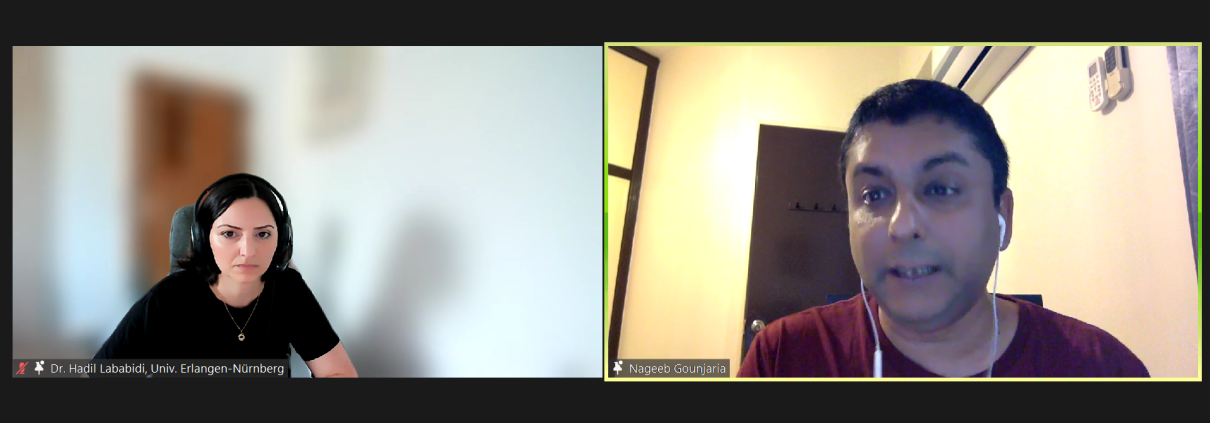Islamic Perspective on the Use of Tube Feeding [Raboan Discussion Forum]
Wednesday (16/08), Center for Bioethics and Medical Humanities, Faculty of Medicine, Public Health, and Nursing held a Raboan Discussion Forum titled “Tube Feeding in Dementia at the End of Life from an Islamic Perspective.” The event, which was held online, invited speakers, Dr. Hadil Lababidi from Erlangen University, Germany. Meanwhile, the discussion was led by Ns. Wahyu Dewi Sulistyarini, M.SN.
Dementia is an umbrella term for a disease of decreased cognitive ability. One type of disease in dementia is Alzheimer’s. People living with acute dementia will experience severe symptoms such as being confined to bed, wetting the bed, and having difficulty swallowing food.
Artificial Nutrition and Hydration (ANH) was created to help people living with dementia get food intake. ANH will be given through a gastronomic tube or nasogastric tube, so this process is often called Tube Feeding. ANH can cause several side effects, such as nausea, vomiting, diarrhea, and infection. Apart from that, it can also make patients stressed and uncomfortable and increase social isolation.
From an Islamic point of view, hunger and lack of nutrition is something that is opposed. However, continuous use of ANH should be avoided. Islam teaches that close relatives who care for dementia patients must respect the patient’s dignity and prevent the side effects of ANH.
There are several alternatives that can be used besides tube feeding, including Assisted Hand Feeding (AHF), Feeding Positions and Skills, and Modification of Food Texture.




Leave a Reply
Want to join the discussion?Feel free to contribute!